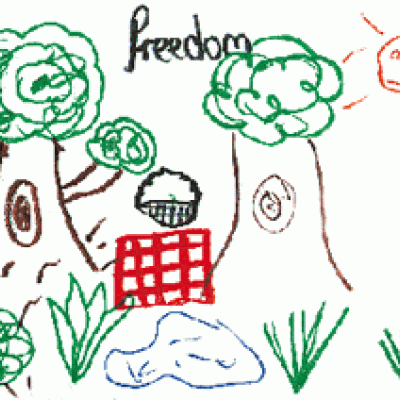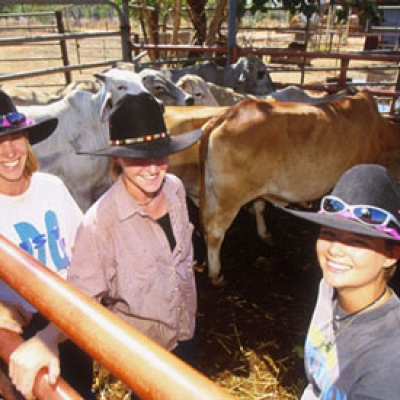Refine results
-
14 December 2012Book page
HREOCA: religious freedom
This is an information paper only. It is intended to provide general guidance. It is not a legally binding document and is not a substitute for independent legal advice. It is limited to the role and function of the Human Rights and Equal Opportunity Commission as contained in the legislation establishing the Commission. -
14 December 2012Book page
Stories of discrimination
In 2006, the Commission conducted a National Inquiry into discrimination against people in same-sex relationships regarding access to financial and work-related entitlements and benefits. The inquiry is known as the Same-Sex: Same Entitlements Inquiry (the Inquiry). -
14 December 2012Book page
Government's inquiry into homelessness legislation (2009)
On the 26 November the House of Representatives Standing Committee on Family, Community, Housing and Youth released its report of an inquiry into homelessness legislation. The inquiry followed the federal government’s release, on 21 December 2008, of its White Paper, The Road Home: A National Approach to Reducing Homelessness. In the White Paper, the government pledged to ‘enact new legislation… -
14 December 2012Book page
Homelessness is a Human Rights Issue (2008)
Access to safe and secure housing is one of the most basic human rights. However, homelessness is not just about housing. Fundamentally, homelessness is about lack of connectedness with family, friends and the community and lack of control over one’s environment. -
Rights and Freedoms14 December 2012Publication
Human Rights and Mental Illness
The Report of the National Inquiry into the Human Rights of People with Mental Illness was tabled in Parliament and publicly released on 20 October, 1993. Over a three year period the Inquiry received nearly 900 written submissions, heard from over 450 witnesses at formal hearings and consulted with approximately 300 people at forums and informal meetings. -
14 December 2012Book page
Human Rights Act - Constitutional validity of an Australian Human Rights Act
On 22 April 2009 the Australian Human Rights Commission convened a meeting of Australian constitutional and human rights lawyers to discuss the constitutional implications of an Australian Human Rights Act. This statement records the consensus reached by those at the meeting. Their names are listed below. -
14 December 2012Book page
Let's talk about rights: Toolkit and information sheets
This Consultation Toolkit was prepared to help individuals and community sector organisations participate in the National Human Rights Consultation. The Toolkit focuses on why Australia should adopt a Human Rights Act. -
14 December 2012Book page
Human Rights Act - Events - Seminars and Consultation Workshops
17 February 2009: The UK Human Rights Act as a ‘parliamentary model’ of rights protection: lessons for Australia, presented by Murray Hunt - Legal Advisor to the UK Parliament’s Joint Committee on Human Rights. -
14 December 2012Book page
Human Rights Act - Consultation Workshops
back to the Commission's National Human Rights Consultation pages Events: Consultation workshops During the National Consultation, the Commission held a series of practical workshops aimed at helping organisations and individuals make submissions. A full list of the workshops held is contained in the Commission’s submission to the National Consultation. Other events Click here for the… -
14 December 2012Book page
Human Rights Act - Useful Links
Human Rights Act TV is website where young people can have their say about their human rights by making a submission online, by text message or by making a youtube clip. -
Rights and Freedoms14 December 2012Publication
Implementing the Optional Protocol to the Convention against Torture : Options for Australia
A report to the Australian Human Rights Commission by Professors Richard Harding and Neil Morgan (Centre for Law and Public Policy, The University of Western Australia) -
14 December 2012Book page
A last resort ?
No child shall be deprived of his or her liberty unlawfully or arbitrarily. The arrest, detention or imprisonment of a child shall be in conformity with the law and shall be used only as a measure of last resort and for the shortest appropriate period of time. -
14 December 2012Book page
Social Justice Report 2004 : Chapter 2 : Walking with the Women - Addressing the needs of Indigenous women exiting prison
Introduction Pre and post-release programs for Indigenous women exiting prison An overview of Indigenous women in corrections Intersectional discrimination - Addressing the distinct experiences of Indigenous women Post-release programs for Indigenous women exiting prison - common themes from consultations Policy and programs relating to Indigenous women exiting prison Post-release housing… -
14 December 2012Book page
HREOC Social Justice Report 2002: Indigenous women and corrections - A Landscape of Risk
a) Rates of incarceration of Indigenous women b) Recidivism rates among Indigenous women c) Types of crime committed by Indigenous women d) Over-policing e) Sentencing patterns for Indigenous women f) Characteristics of Indigenous women who are imprisoned -
14 December 2012Book page
Prisoners as Citizens:
The Commission convened a workshop in Sydney on 27 November 2000 on this topic. It was attended by more than 120 participants. The workshop was addressed by two keynote speakers: Dr William Jonas AM, the Aboriginal and Torres Strait Islander Social Justice Commissioner, and Baroness Vivien Stern from the International Centre for Prison Studie at King's College London who travelled to Australia as… -
14 December 2012Book page
Report of the National Inquiry into the Human Rights of People With Mental Illness
The Report of the National Inquiry into the Human Rights of People with Mental Illness was tabled in Parliament and publicly released on 20 October, 1993. -
14 December 2012Book page
The Human Rights of Rural Australians
Human rights are universal. This means they apply to all people wherever they live and whatever their circumstances. People living in rural areas have an equal entitlement to human rights as those people who live in urban areas. However, for rural Australians, the full enjoyment of their human rights can sometimes be problematic. The reasons for this are many and varied. They include issues of… -
14 December 2012Book page
Bush Talks (1999)
Bush Talks was endorsed by Mrs Margaret Smith (National President of the Country Women's Association); Mr Gatjil Djerrkura (Chair of ATSIC); Mr David Dunn (National President of Australian Rural Youth) and Dr Wendy Craik (Executive Director of the National Farmers' Federation). -
Rights and Freedoms14 December 2012Project

Rural and Remote Education Inquiry
Rural and Remote Education Inquiry The National Inquiry into Rural and Remote Education was initiated by the Commission in February 1999. The 1998 Bush Talks consultations on the human rights concerns of regional, rural and remote Australians had revealed that access to education of an appropriate standard and quality was a significant concern in rural and remote areas. In this section you… -
Rights and Freedoms14 December 2012Project

Bush Talks: Rural Health
In 1998 and 1999 the Commission (then known as HREOC) visited regional, rural and remote areas in every State and the Northern Territory as part of the Bush Talks consultations.
